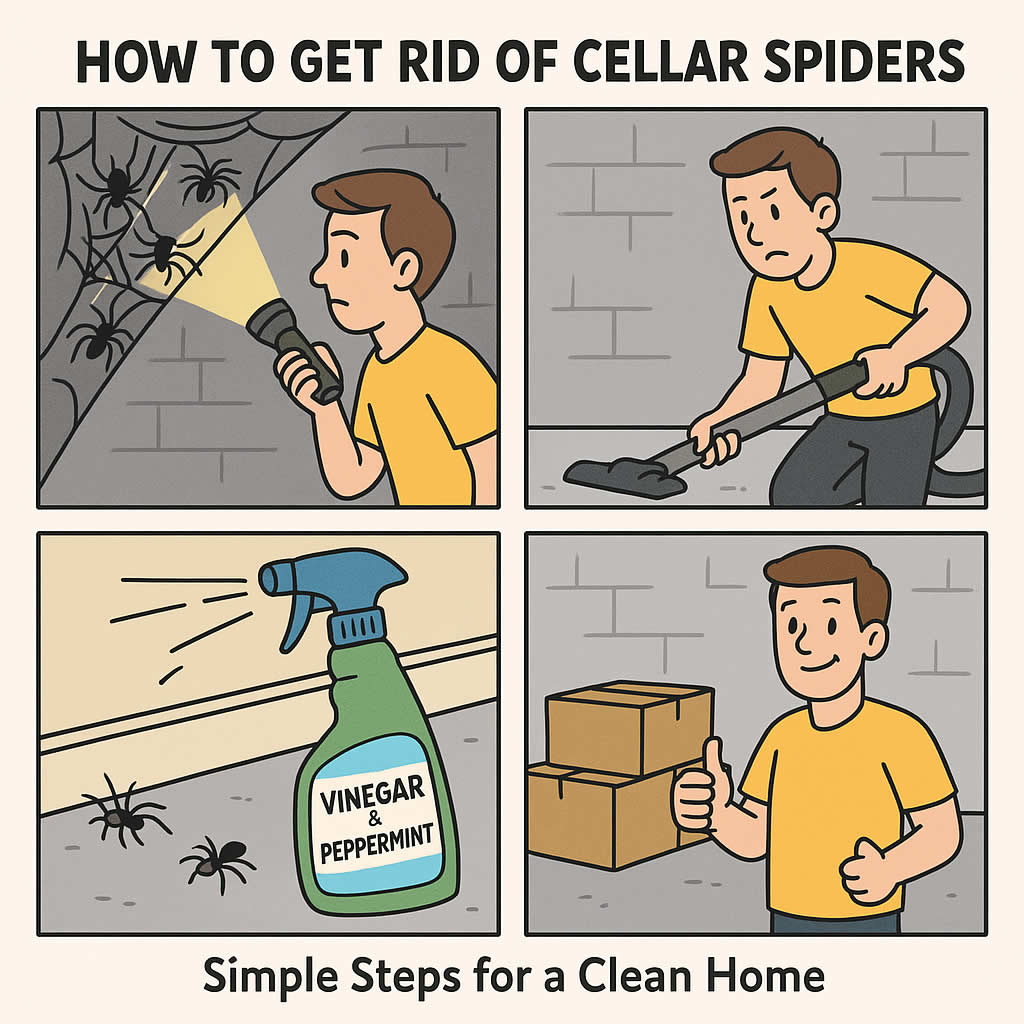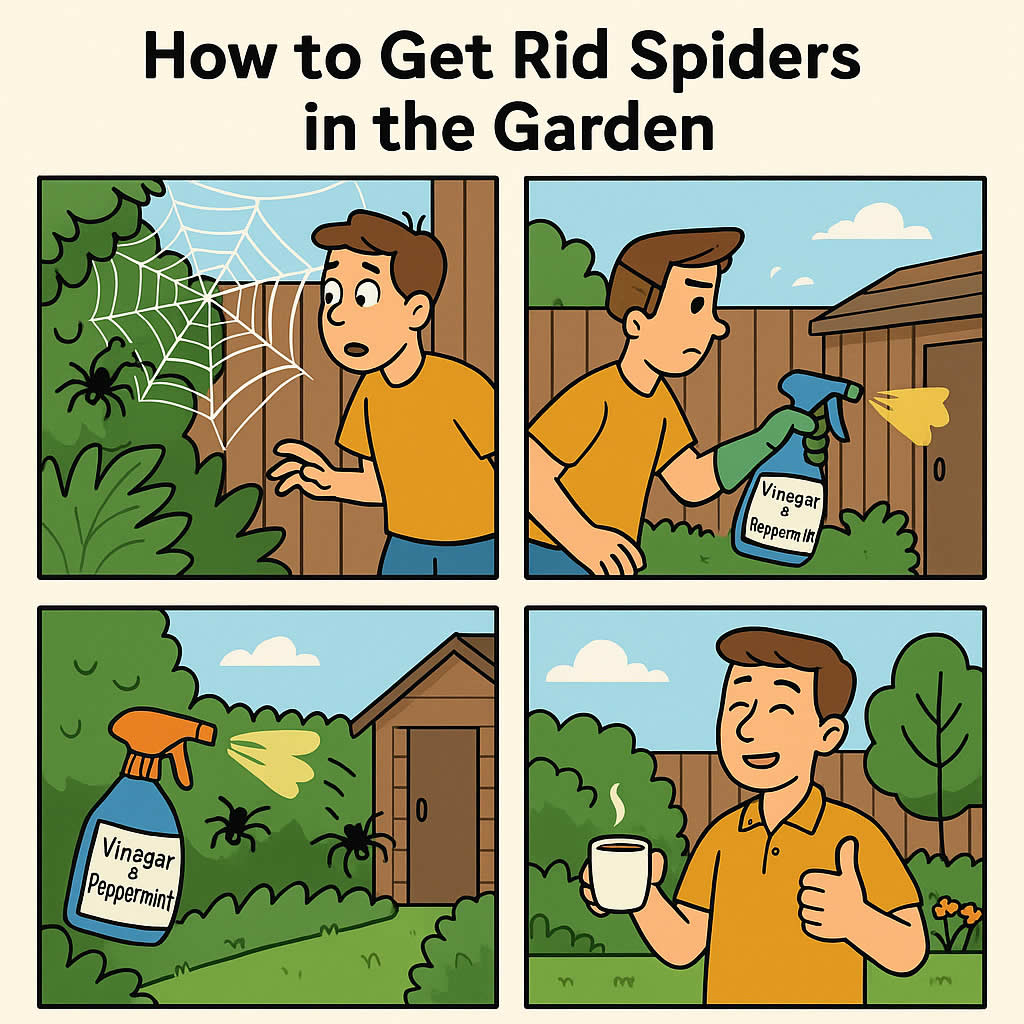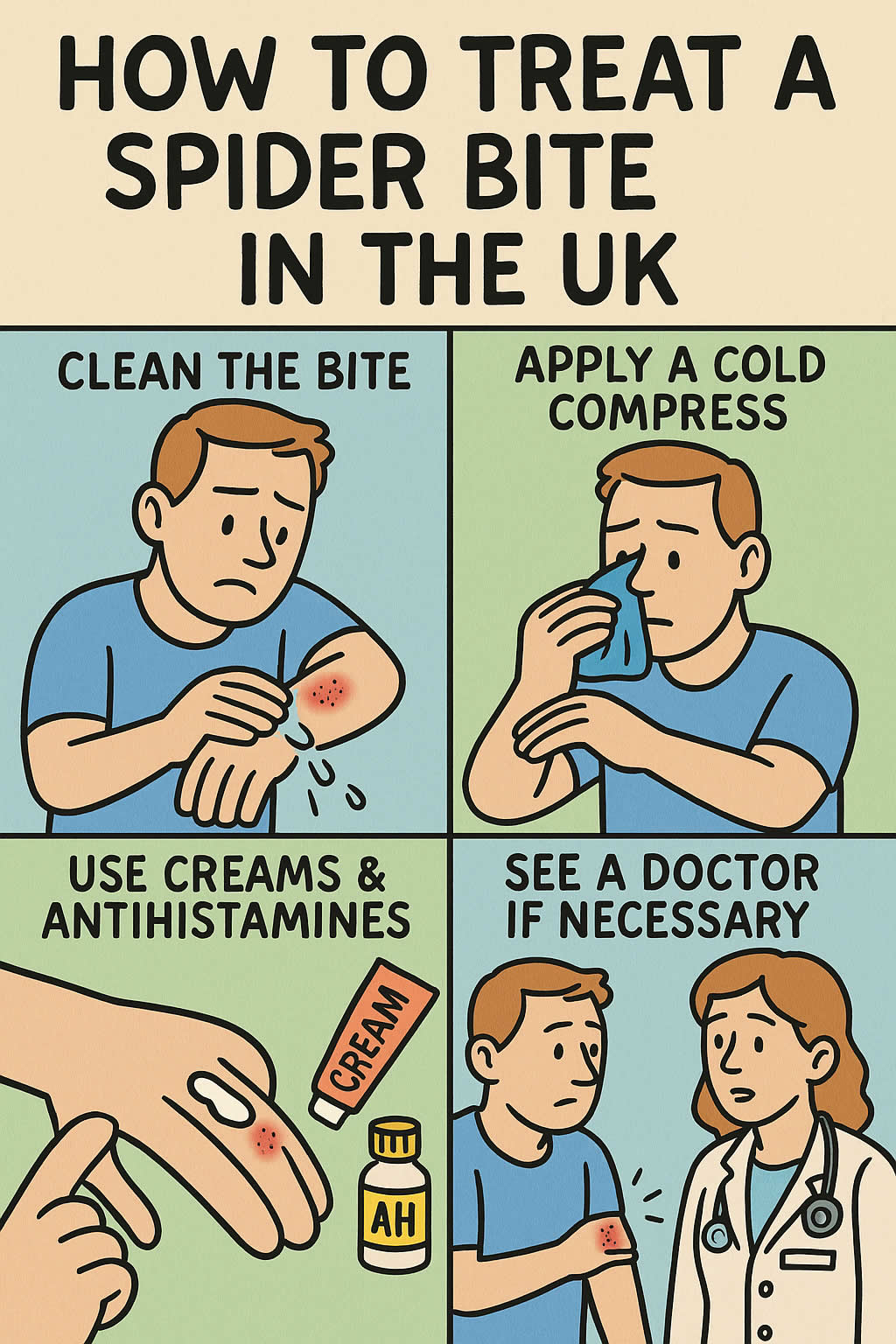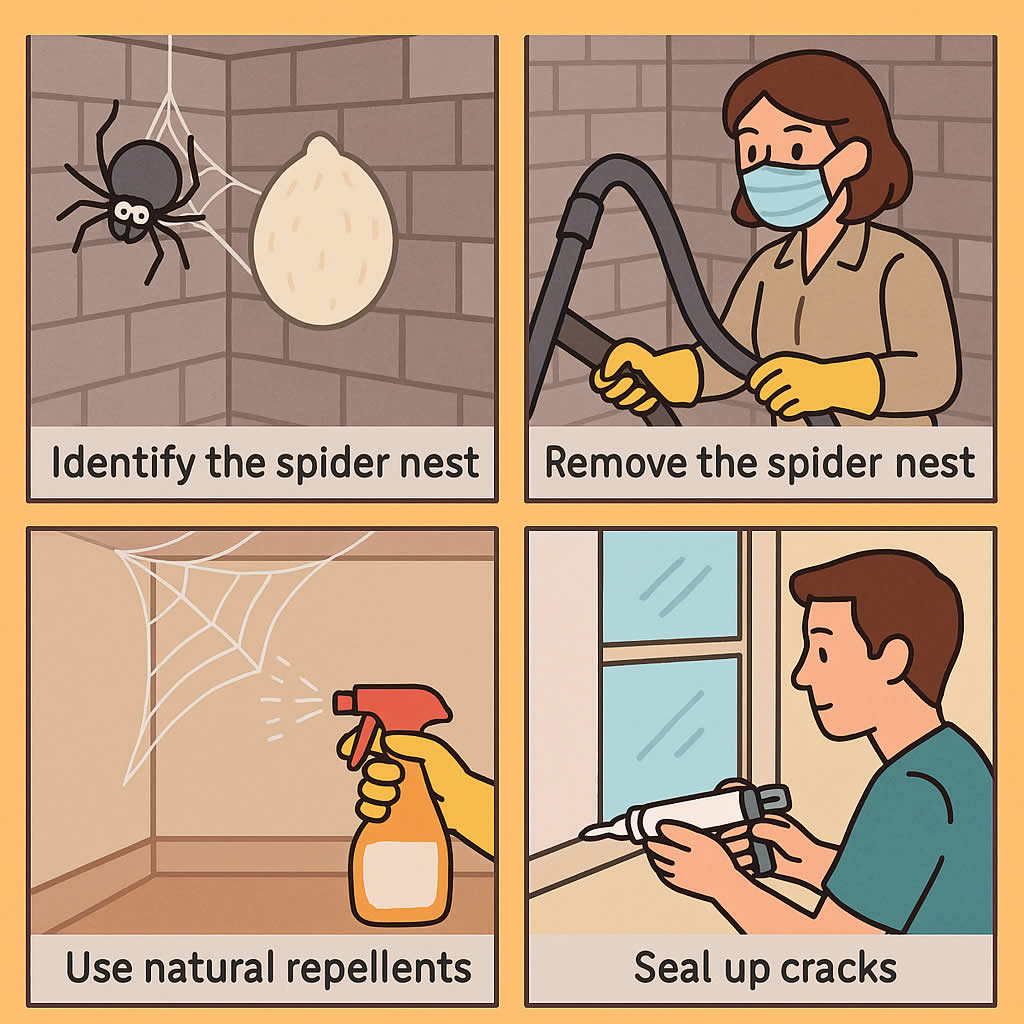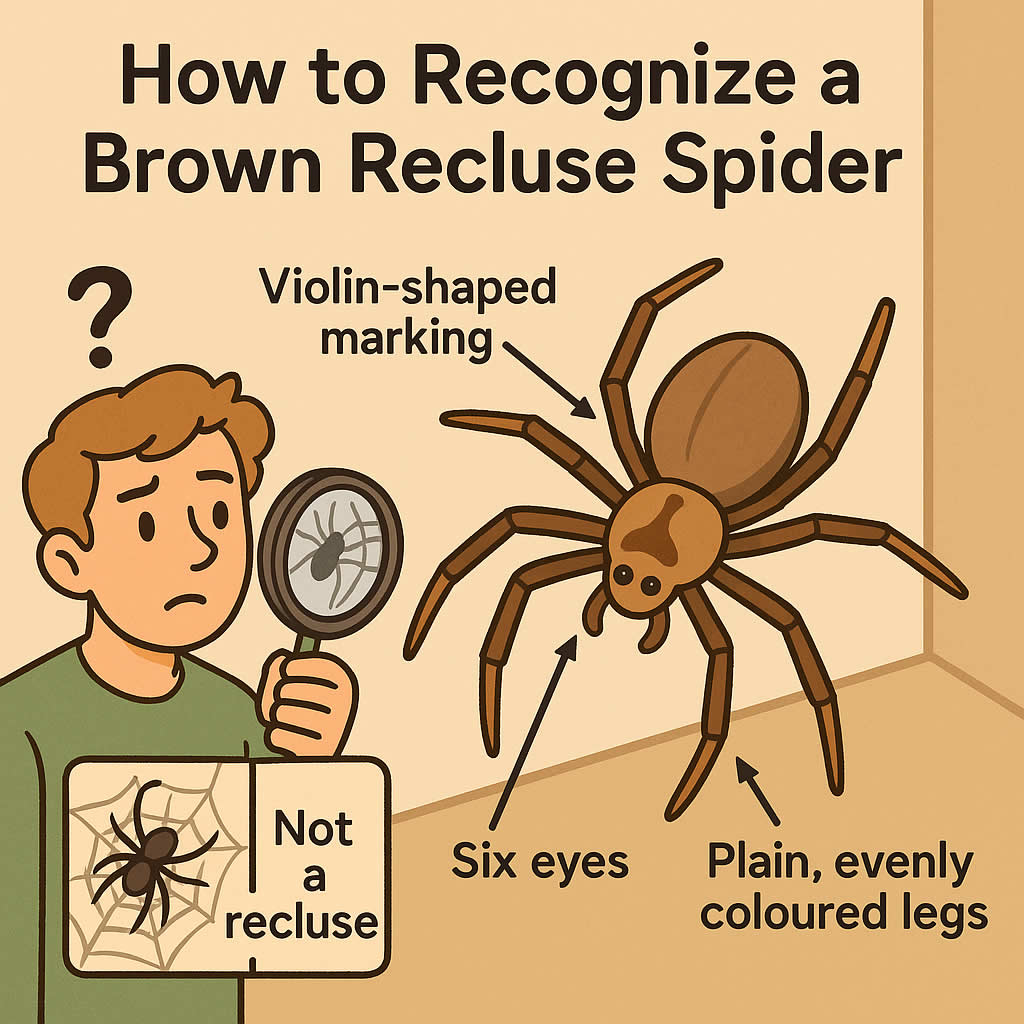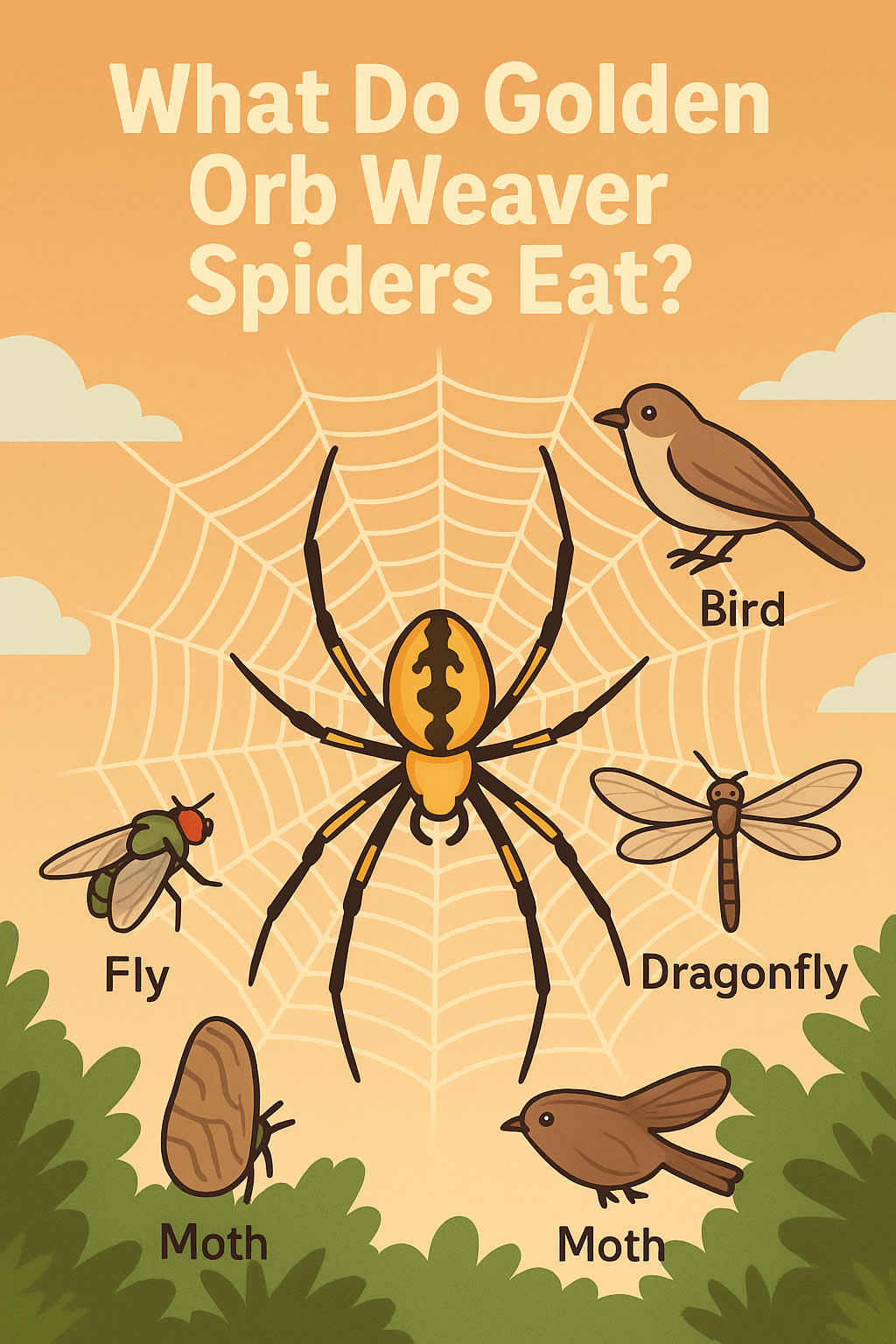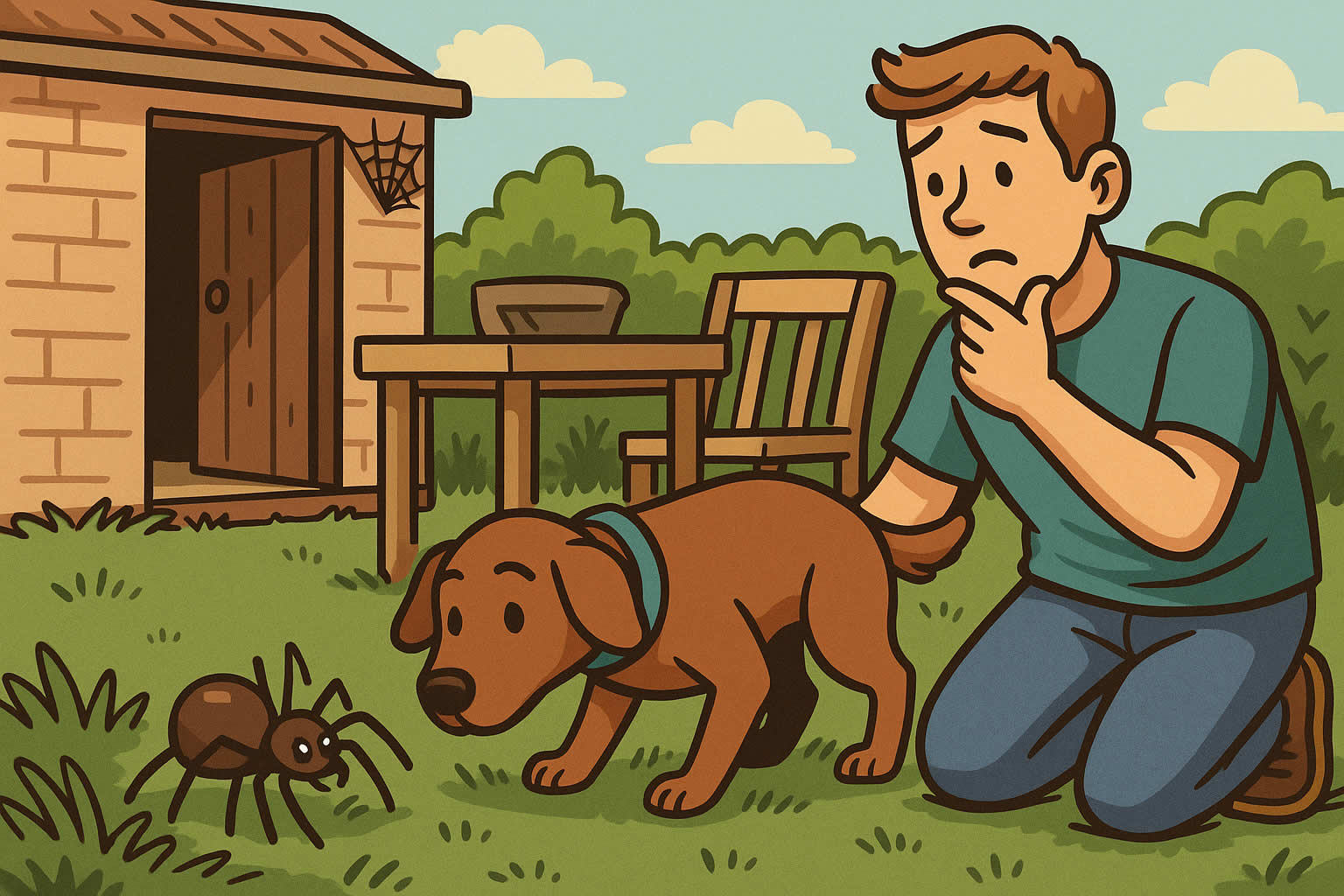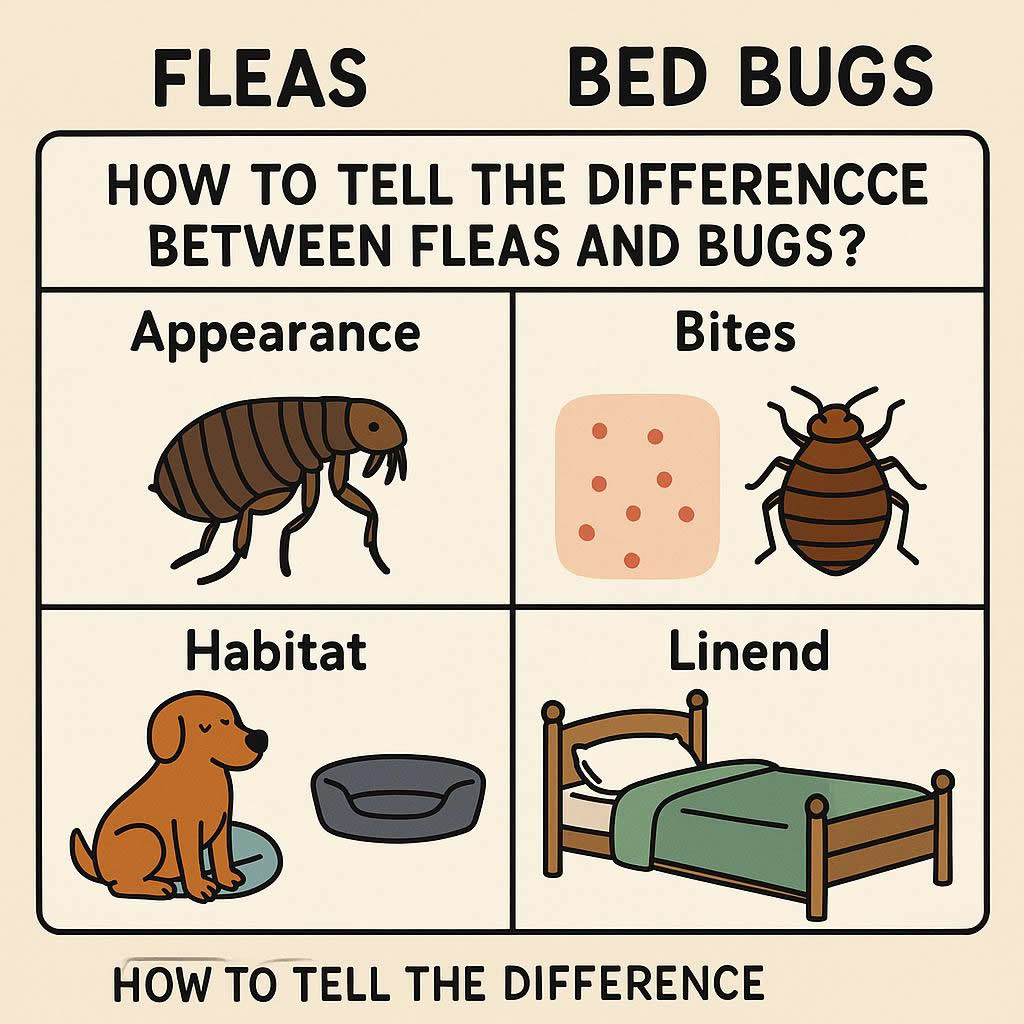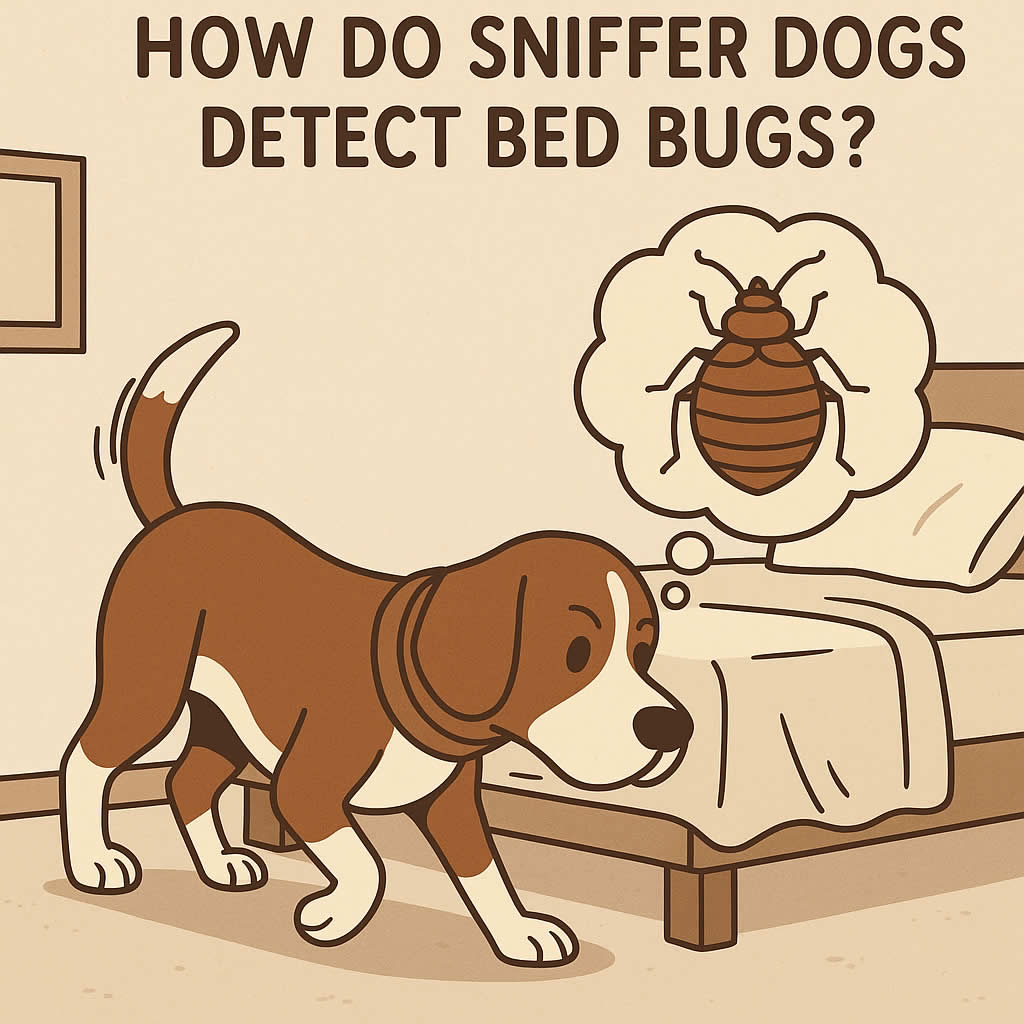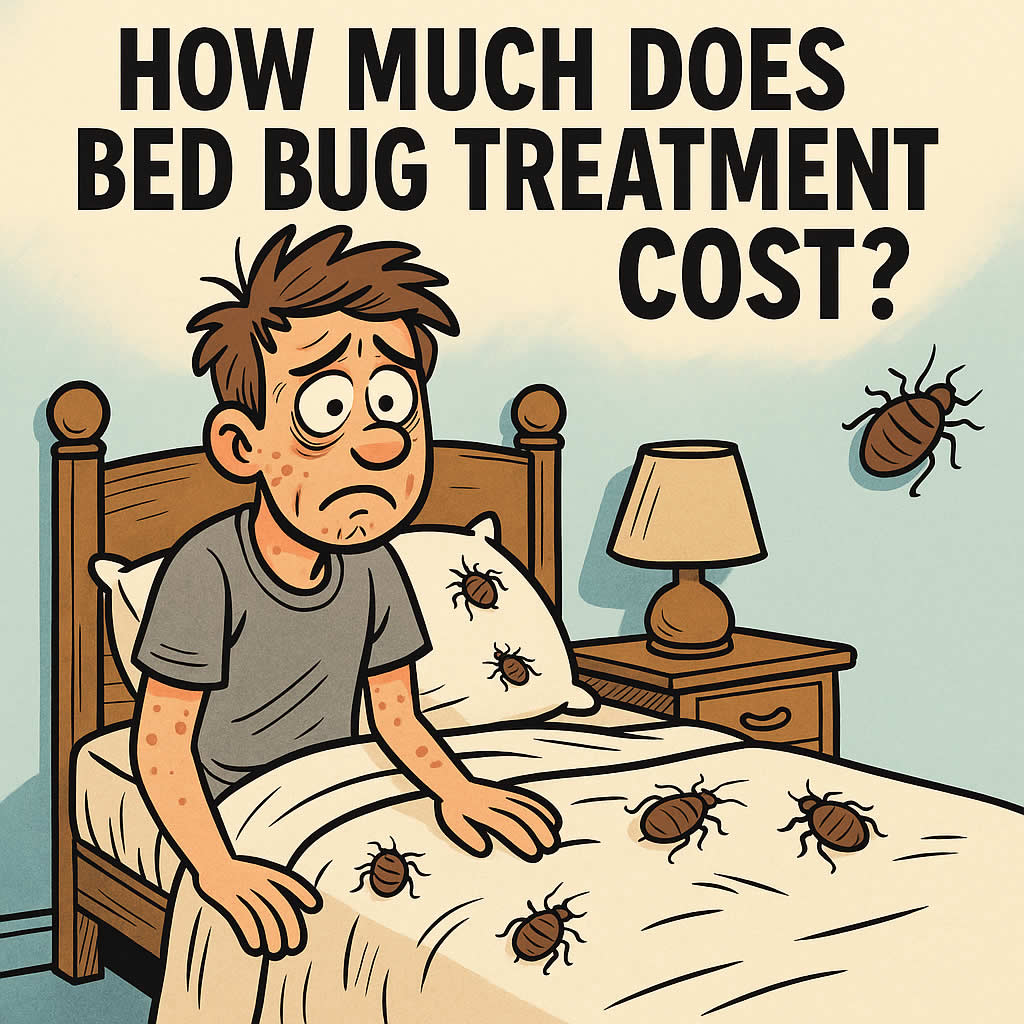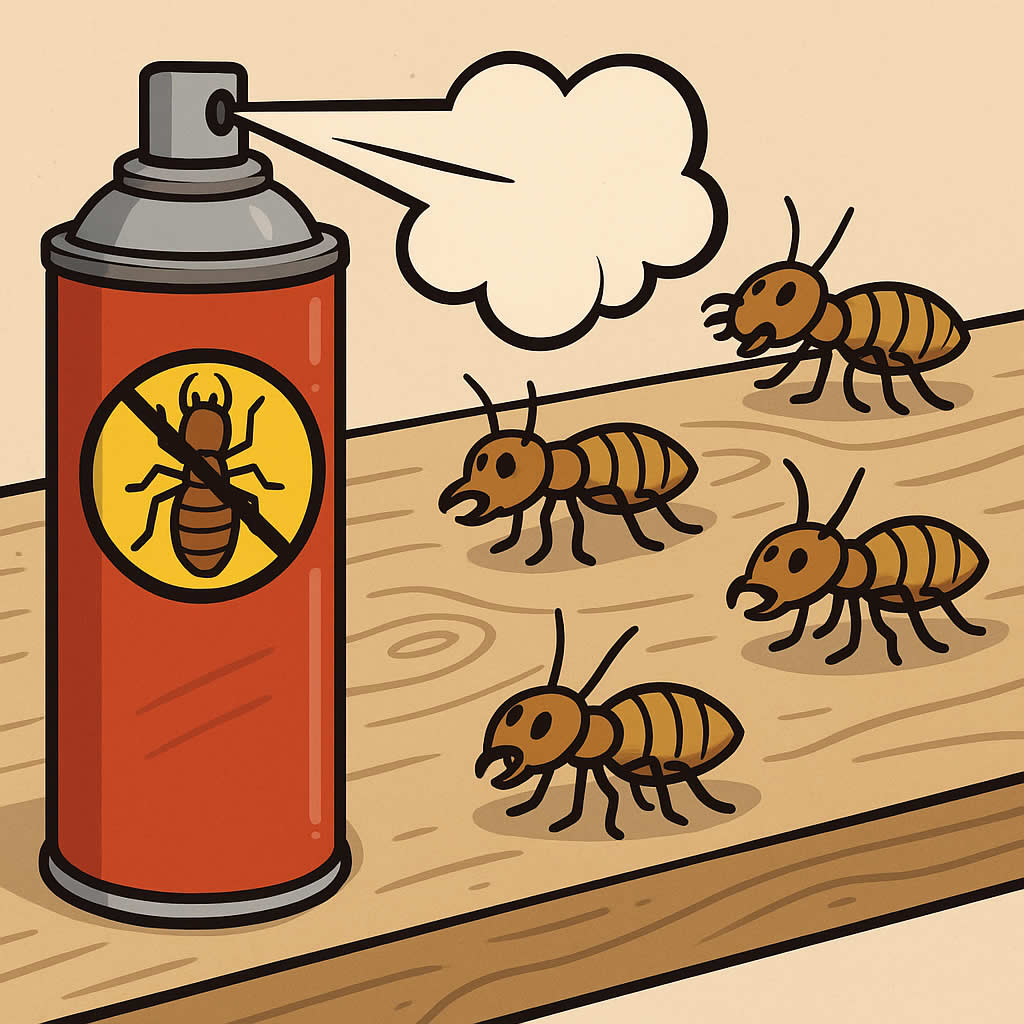Related Queries
ToggleIf you’ve noticed thin webs stretching across the corners of your cellar, loft, or garage, chances are you’ve got cellar spiders. These spindly-legged creatures, often called daddy long-legs spiders, are a common sight in UK homes. They thrive in dark, quiet spaces and can quickly build up a network of webs if left alone.
For many people, cellar spiders aren’t just a nuisance — their messy webs can make rooms feel untidy, and seeing clusters of them hanging in corners can be unsettling. While they’re not harmful, most of us would prefer to keep them out of our living spaces.
In this guide, you’ll learn exactly what cellar spiders are, why they choose your home, how to remove them safely, and the best ways to stop them coming back. We’ll cover natural methods, preventative steps, and when to consider calling in a professional if the problem gets out of hand.
What are cellar spiders?
Cellar spiders belong to the family Pholcidae. They’re easy to recognise because of their tiny bodies and very long, thin legs, which give them their common name “daddy long-legs spiders.” They’re pale, often light brown or grey, and you’ll usually find them hanging upside down in irregular webs.
Unlike orb-weaving spiders, which spin neat circular webs, cellar spiders build loose, tangled webs in corners or under surfaces. They’re not aggressive, and in fact, they mostly feed on insects and even other spiders. This makes them useful in some ways, but the constant webs and clusters often outweigh that benefit for homeowners.
Why do cellar spiders come into your home?
Cellar spiders aren’t after you — they’re looking for shelter and food. Homes provide both in abundance.
- Warmth and shelter: in colder months, they move indoors to escape the weather.
- Food sources: spiders feed on insects, so if your home attracts flies, mosquitoes, or moths, cellar spiders won’t be far behind.
- Dark corners: they prefer quiet, undisturbed spaces like lofts, garages, and cellars.
- Moisture: damp spaces such as basements or poorly ventilated bathrooms are especially inviting.
If your home ticks these boxes, it’s easy to see why they settle in.
Are cellar spiders harmful?
One of the most common questions people ask is whether cellar spiders are dangerous. The simple answer is no. Their fangs are too small and weak to bite humans, and they carry no venom that can harm you.
In fact, cellar spiders often prey on other insects and even more troublesome spiders, which means they play a small role in pest control. But despite this, the thought of multiple spiders dangling in corners and covering your cellar or garage with webs can be unsettling. For most people, it’s not about danger — it’s about comfort and cleanliness.
Where do cellar spiders usually hide?
True to their name, cellar spiders are often found in cellars and basements. But they’re not limited to those spaces. You might also see them in:
- Lofts and attics
- Garages and sheds
- Underneath staircases
- In corners of rarely used rooms
- Behind furniture
- Around window frames and ceiling beams
Because they prefer still, undisturbed areas, they tend to avoid high-traffic parts of the home. But once you know where to look, it’s easy to spot their fine, messy webs.
How do you safely remove cellar spiders?
Getting rid of cellar spiders doesn’t have to be complicated. A few practical steps can clear them out and keep your rooms looking tidier.
- Vacuum regularly: the simplest way to remove spiders and their webs is with a vacuum cleaner. Use the nozzle attachment to reach into corners and along ceilings.
- Catch and release: if you’d rather not kill them, use a glass and piece of card to trap them gently and release them outside.
- Remove webs completely: don’t just knock webs down — make sure you clean the surface with a damp cloth or mild disinfectant to discourage them from rebuilding.
- Seal hiding places: once you’ve removed them, block small cracks or gaps where they might re-enter.
The key is consistency. Clearing webs once won’t stop them if the space is still attractive for nesting. Regular cleaning makes a big difference.
What natural methods repel cellar spiders?
If you want to stop cellar spiders without using chemical sprays, there are natural remedies that can help:
- Vinegar spray: mix equal parts vinegar and water in a spray bottle. Spray along skirting boards, corners, and window frames. Spiders dislike the smell and it breaks down their silk.
- Peppermint oil: a few drops of peppermint oil in water creates a strong-smelling spray that deters spiders.
- Citrus: spiders dislike citrus scents. Wiping surfaces with lemon-scented cleaners can help keep them away.
- Eucalyptus: placing eucalyptus leaves or using an oil spray in problem areas works as a natural repellent.
- Decluttering: by reducing piles of boxes or unused items, you take away the hiding spots that spiders prefer.
These methods work best when combined with regular cleaning and sealing of entry points.
Should you use chemical sprays?
Chemical sprays designed for spiders and insects are widely available. They can be effective in reducing spider numbers, especially if you have a heavy infestation. But before using them, consider the downsides.
Chemical sprays can be harmful to pets, children, and beneficial insects. They may also leave residues on surfaces. For this reason, most people prefer to start with natural repellents and physical removal before turning to harsher solutions. If you do choose chemicals, follow the instructions carefully and use them only in targeted areas.
How do you prevent cellar spiders from coming back?
Prevention is the most effective way to deal with cellar spiders long term. Here are some steps that work:
- Seal entry points: fill gaps around windows, doors, and skirting boards with sealant.
- Control moisture: use a dehumidifier in damp cellars or basements.
- Keep storage tidy: store items in sealed plastic containers rather than cardboard boxes.
- Use regular repellents: keep up vinegar or peppermint oil sprays weekly in problem areas.
- Manage lighting: outdoor lights attract insects, which attract spiders. Switch to yellow bulbs or use motion-sensor lighting.
- Maintain garden spaces: trim back plants close to the house and clear piles of leaves or wood where spiders may breed.
By making your home less appealing, you’ll notice fewer webs and fewer spiders over time.
When should you call a pest control service?
Most people can handle cellar spiders with cleaning and natural deterrents. But there are times when professional help is worth considering.
- If you notice large numbers of spiders across multiple rooms.
- If nests and webs keep returning despite regular cleaning.
- If the problem is affecting your peace of mind or your family’s comfort.
Pest control professionals can assess the scale of the issue, remove spiders safely, and help you with longer-term prevention.
Frequently asked questions
Do cellar spiders bite?
No, their fangs are too weak to break human skin.
Do cellar spiders eat other spiders?
Yes, they sometimes catch and eat other spiders, which is why they’re often considered useful.
Are cellar spiders good for pest control?
They can be, since they feed on insects. But their webs often become a bigger problem.
Why do cellar spiders cluster together?
They tend to gather in undisturbed areas, sometimes forming groups in dark corners.
Our Final Say!
Cellar spiders might not be dangerous, but their presence can make your home feel less comfortable. Getting rid of them is about more than just removing the spiders — it’s about creating an environment where they don’t want to return.
By vacuuming regularly, removing webs properly, using natural repellents, and sealing up entry points, you can keep them under control. Prevention through tidiness, moisture control, and repellents will reduce the chances of new infestations. And if the problem ever feels overwhelming, professional pest control services are there to help.
With steady habits and a little effort, you can enjoy a cleaner, calmer, and spider-free home.
Pest Control East Sussex – Pest Control Cranfield – Pest Control Battlesden
